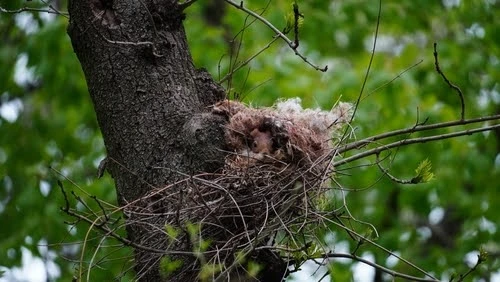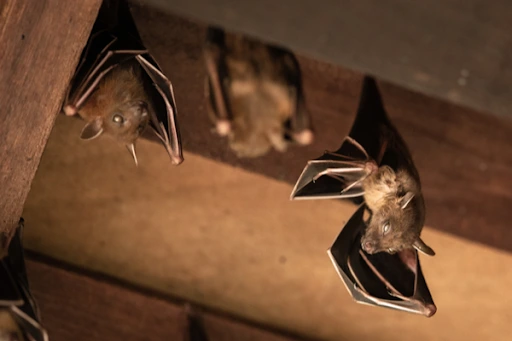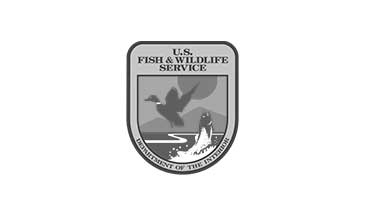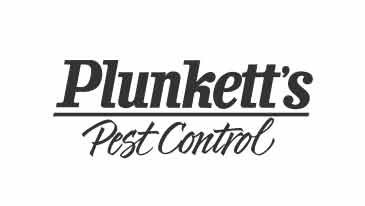Ever wonder why squirrels keep showing up in your yard? These curious critters may seem harmless, but when they start nesting nearby or foraging too close to home, they can cause real problems. From damaged gardens to chewed wiring, the consequences aren’t so cute. If you’ve spotted squirrel nests in your trees or signs of activity around your home, it may be time to call in a professional squirrel removal service.
Understanding squirrel behavior is the first step in protecting your space. Whether you’ve seen a few furry visitors or suspect a larger issue, it helps to know why squirrels build nests, what those nests look like, and—most importantly—what to do if they’re causing trouble in your yard.
What is a Squirrel Nest Called?
Most squirrel nests are called dreys and consist of clumped-together collections of leaves, twigs, bark, moss, and other compressed materials. Squirrels usually build their dreys into tree cavities or around tree branches that are at least 20 feet high.

Where Do Squirrels Nest?
Squirrel nests tend to be close to abundant food sources. These critters have a varied diet, from nuts and seeds to plants (they also won't hesitate to raid your garbage or garden if given a chance).
Why Do Squirrels Nest in Trees?
Squirrels instinctively seek out spaces that offer safety, mobility, and easy access to resources. Trees check every box. Forested areas or yards with climbable vegetation provide natural cover that helps squirrels move around freely while staying hidden from predators. For mother squirrels especially, elevated tree nests offer a secure, concealed place to raise their young.
Trees also give squirrels a quick getaway route, protection from the elements, and a direct link to nearby food sources like acorns, nuts, and seeds. With built-in shelter and escape routes, trees serve as the ideal all-in-one nesting site for these agile climbers.
Do Squirrels Make Nests in the Ground?

Yes. Depending on the type of squirrel, you might also encounter a squirrel nest on the ground. The ground squirrel is one type known to make burrows on land rather than among the trees.
How Do Squirrels Choose What to Make Their Nests Out Of?
Building a drey involves first forming a twig "basket" as a foundation, then lining it with soft materials like wet leaves or moss. This is secured with another outer layer of twigs, and any gaps are filled with more soft materials. To achieve this intricate design, squirrels gather a mix of rigid and soft materials, always scavenging for twigs, leaves, moss, and even discarded items like paper.

The Perfect Habitat: Why Do Squirrels Build Nests in My Yard?
If your yard offers mature trees, bird feeders, or quiet areas like attics or sheds, it might be the perfect squirrel habitat. Squirrels tend to build nests in areas that fall within their home range (a small, familiar territory where they forage, nest, and seek shelter). When your property falls within that range, it means squirrels will return frequently, increasing the chances they’ll explore nearby structures, too.
What Problems Do Squirrels & Their Nests Cause
Squirrel nests themselves are not bad for trees. However, the squirrels that live in them can cause damage, as they use materials from the trees to build their nests. Here are a few issues that squirrels and their nests can cause:
1. Property Damage

- Roof and attic damage. Squirrels can gnaw through roofing material to get into your attic, causing leaks and structural issues
- Insulation damage. Squirrels can tear apart insulation in walls or attics for nesting material, decreasing the efficiency of your home's heating and cooling
- Electrical wiring. Squirrels have been known to chew through electrical wires, posing fire hazards
- Ventilation Systems. They can also get into ventilation systems, causing blockages and potential malfunctions
- Garden damage. Squirrels can dig up bulbs, eat fruits, and gnaw on trees and ornamental plants
- Deck and outdoor furniture. They may chew on wooden decks and furniture, causing cosmetic and structural damage
- Vehicle damage. Some squirrels take nesting or food-hoarding to vehicles, damaging wiring, upholstery, and other components
- Water damage. Their activities can sometimes lead to water damage from blocked gutters or downspouts
2. Health Risks
These animals often carry parasites like ticks and fleas, which can transfer to household pets and potentially spread illness. Additionally, their feces and urine can contaminate insulation and other nesting areas, creating unpleasant odors and possible health hazards inside your home.
3. Noise Disruption
The constant scampering, scratching, and gnawing (especially in attics or walls) can become a major source of noise pollution. Over time, this persistent activity can lead to stress, frustration, and sleepless nights for homeowners trying to enjoy a peaceful space.
4. Food Contamination
Squirrels' search for food can lead to several common issues around homes and yards, including:
- Raiding Bird Feeders. Squirrels often steal food from bird feeders, affecting local bird populations
- Garbage Scavenging. They can knock over and rummage through garbage cans, making a mess and attracting other pests
5. Additional Expenses
A squirrel infestation can become expensive. Homeowners may need to hire professional pest control services for effective and humane removal. On top of that, the damage squirrels cause often requires professional repairs.
Wildlife Pest Control for Squirrel Removal

Don’t attempt removing a squirrel nest on your own. Removing a squirrel nest yourself can be dangerous and ineffective, especially if there are hidden babies inside. Professional removal ensures the process is humane, safe, and compliant with wildlife laws, while also preventing future infestations.
Give Varment Guard a call. Our experts can remove squirrels and make sure they don’t come back. Relocating the disruptive rodents isn’t just best for you; it’s best for the squirrels, too!









